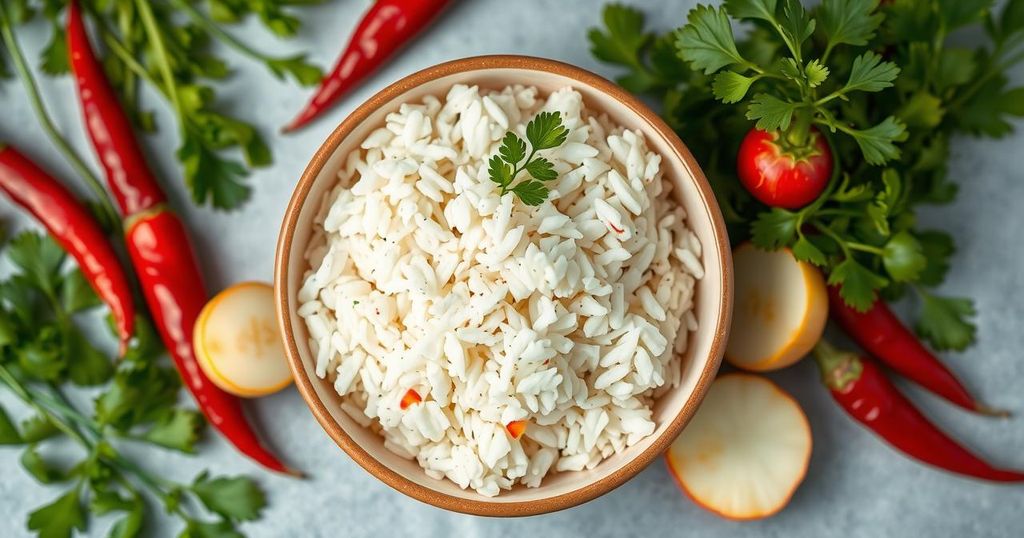Vietnam’s economy is on an upswing, with rice exports to Japan increasing and e-commerce tax revenues rising. Coffee exports peaked at $1.72 billion, driven by high global prices. The State Bank adjusts the reference exchange rate while supporting SMEs. Significant improvements in seafood exports and ongoing developments in air travel and industrial real estate reinforce Vietnam’s growth trajectory.
Vietnam is witnessing a surge in various sectors, particularly in rice exports aimed at Japanese consumers, thanks to a growing interest in Vietnamese produce. Additionally, the country’s e-commerce framework has greatly improved tax revenue, as 130 foreign firms, including major players like Google and Facebook, have engaged with the electronic tax portal, generating approximately 2.91 trillion VND in tax contributions.
Coffee exports from Vietnam generated $1.72 billion in the initial two months of the year, with notable increases despite a drop in export volume. A sharp rise in global coffee prices has been cited as a significant factor, with export value surging by over 37% during this period.
The reference exchange rate for the US dollar was adjusted by the State Bank of Vietnam, which set it at 24,793 VND/USD on March 18, indicating a minor reduction of 1 VND from the previous figure. This adjustment reflects ongoing fluctuations in the financial landscape.
To support sustainable business practices, the Ministry of Finance is actively facilitating connections for small- and medium-sized enterprises (SMEs) with financial institutions and international investors. Furthermore, an initiative backed by the State Secretariat for Economic Affairs aims to improve supply chain finance for over 500,000 SMEs, offering access to $35 billion in funding by 2029.
Vietnam has become Brazil’s second-largest aquatic product supplier, with exports reaching $655 million in February alone, representing a 44.5% year-on-year increase, and pushing the total for the first two months of the year to $1.42 billion.
The State Bank of Vietnam is formulating a roadmap to eliminate the credit growth quota policy, a measure in place since 2011 aimed at stabilizing the economy during times of inflation. Additionally, lending growth in Ho Chi Minh City is expected to see a minor decline in 2025, albeit with a year-on-year increase.
The e-tax system has resumed full operations after a brief suspension aimed at enhancing tax management. The Customs sector also reported successful operations under a new three-tier model, resulting in significant streamlining and efficiency improvements, as reflected by a trade of $1.05 billion on the first day of implementation.
Vietnam’s industrial real estate sector is anticipated to benefit from recent policy implementations and increased foreign direct investment (FDI). The removal of legal barriers is facilitating business growth in this area for 2025.
Air travel will see expansion as Vietnam Airlines and Vietjet Air will begin operations from the newly constructed Terminal T3 at Tan Son Nhat International Airport in May, designed to accommodate 20 million passengers annually with a significant investment of nearly 11 trillion VND.
Vietnam is aiming for a robust export revenue target of $454 billion, having recorded exports worth $65.2 billion from January to February, alongside a trade surplus of 235 million USD despite increases in imports.
The exchange rate saw a slight increase of 15 VND, setting the rate at 24,794 VND/USD on March 17, indicating active market dynamics. In addition, Vietnam Airlines plans to reinstate direct flights from Hanoi to Moscow starting May 8, as part of broader international expansion.
Experts believe Vietnam is well-positioned to establish itself as a significant international financial center, emphasizing the need for flexibility in selecting financial models while prioritizing human capital as a crucial success factor. In trade news, Hoa Phat’s hot rolled coil products are exempt from EU anti-dumping duties, enhancing opportunities for EU exporters while the country anticipates continued strong demand for rice, having already exported over one million tonnes in the first two months of 2025.
Vietnam is experiencing significant growth across multiple sectors including rice and coffee exports, bolstered by improved tax contributions from foreign companies and strategic government initiatives. Current policies aim to enhance SMEs’ access to finance, while the nation positions itself for further expansion in industrial real estate and international trade. Overall, Vietnam’s economic landscape is set to evolve, targeting increased export revenue and establishing a more robust financial framework.
Original Source: en.vietnamplus.vn






